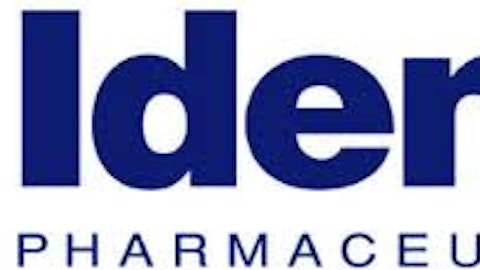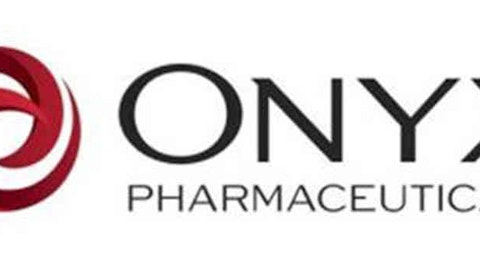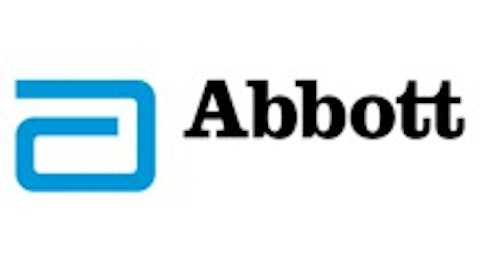Medical firm Johnson & Johnson (NYSE:JNJ) recently announced a private-company acquisition that could have major implications for one of the markets in which it operates. According to reports, the company will acquire the bulk of San Diego-based Aragon Pharmaceuticals by the end of the third quarter of 2013. As a smaller firm that manufactures an experimental-stage drug that fights a particularly aggressive form of prostate cancer, Aragon presents a sizable risk for Johnson & Johnson (NYSE:JNJ). At the same time, a successful transition could position the company as the dominant firm in the fast-growing market for prostate cancer drugs.
This purchase could have an impact outside of the Johnson & Johnson ecosystem. Since several companies are in the process of developing experimental prostate drugs, a concerted push by Johnson & Johnson (NYSE:JNJ) could weed out weaker competitors or reorder the way in which the sub-industry operates. Investors who normally avoid “speculative” pharmaceutical plays might find something to appreciate in this pending deal.
Johnson & Johnson and the Competition
Although Johnson & Johnson has a major pharmaceutical operation and is responsible for providing the drugs that fill millions of prescriptions on an annual basis, it is also a consumer-products firm that produces a stunning array of everyday personal care aids and over-the-counter medications. However, this analysis focuses exclusively on Johnson & Johnson’s work in the cancer-drug sector. As such, it would be useful to compare the firm to other pharmaceutical giants that operate in the space.
Johnson & Johnson (NYSE:JNJ) has a market cap of about $237 billion. By comparison, Swiss competitor Novartis AG (ADR) (NYSE:NVS) is valued at around $174 billion. New York-based Pfizer Inc. (NYSE:PFE)‘s valuation comes in at about $205 billion. All three of these firms enjoy eye-popping revenues and solid profits. In 2012, Johnson & Johnson posted a profit of $10.5 billion on revenues of nearly $69 billion. With $9.7 billion in profits on $58 billion in revenues, Novartis AG (ADR) (NYSE:NVS) had a nearly identical margin. Pfizer Inc. (NYSE:PFE) posted a $10.5 billion profit on $58 billion in revenues for a substantially better margin.
Thanks in part to its diversification and the promise of its experimental-drug pipeline, Johnson & Johnson is a bit more expensive than its peers. Its price-to-book ratio of 3.6 compares to nearly identical ratios of 2.5 and 2.6 for Pfizer Inc. (NYSE:PFE) and Novartis AG (ADR) (NYSE:NVS).
How the Deal Will Occur
According to a release that accompanied the deal’s announcement, Johnson & Johnson (NYSE:JNJ) will shell out about $650 million in cash for the prostate cancer portion of Aragon’s operations. If Aragon’s pre-negotiated sales and development targets are met, this payment could be followed by a subsequent $350 million bonus. It should be noted that Johnson & Johnson will not purchase Aragon in its entirety. The company’s non-prostate assets will be spun off into a new private concern known as Seragon Pharmaceuticals. This firm will continue to operate with members of Aragon’s San Diego-based management team. While this new firm could provide some future investment opportunities as an IPO candidate or buyout target, most market-watchers believe that Aragon’s prostate cancer operations are the most valuable piece of its business.
What It Means for Johnson & Johnson and Aragon
The Aragon acquisition opens a number of doors for Johnson & Johnson (NYSE:JNJ). If the company’s signature prostate drug successfully completes its remaining trial phases, it will enjoy patent exclusivity until the late 2020s. Conveniently, it could also offset the expected loss of revenue from the 2016 patent expiration of Johnson & Johnson’s blockbuster Zytiga cancer treatment.






